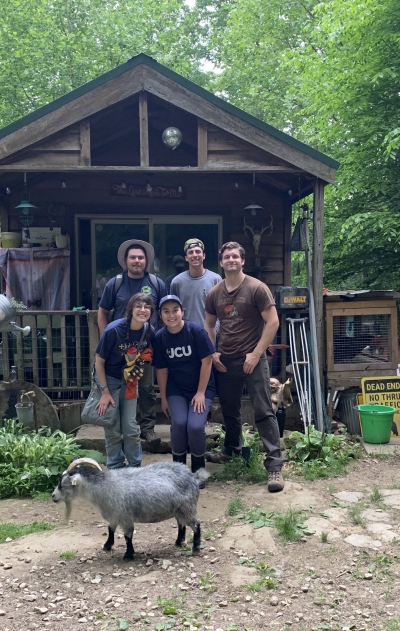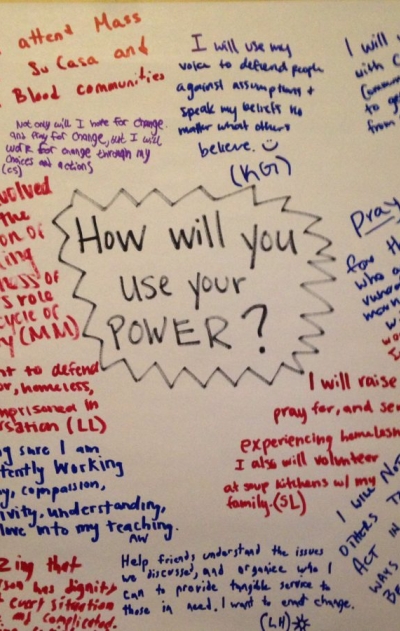Stay tuned to see where we are going for Spring Break & May 2025 Immersions!
Student Coordinator Applications will go out at the end of the Spring 2024 semester!
Upcoming Immersions

Focus: Major themes of this immersion include simple living, mountaintop removal and the ecological crisis, the effects on the coal mining industry, the history of Appalachia and the movement of unions and miners, the health effects and concerns of the region, the culture of community, etc. It is a great cross section of how different social justice issues impact one another. Partner Organization: Our community partner for this immersion is the Appalachian Catholic Worker Farm outside Spencer, West Virginia, just north of Charleston. ACW describes the experience they offer students as being one-third service, one-third education, and one-third reflection. Learn more details at https://www.acwfarm.com/.
Uncovering and Exploring the Heart of Appalachia (Spencer, West Virginia)
May 2024
Overview: Our work for the week will be to offer medical services and medications to those who are very poor. Ideally, participants will be students from all majors and alumni doctors and nurses. Medical professionals from the Cleveland community are also invited to provide care to the people of Honduras and act as mentors to our pre-health students. We expect to participate in a number of medical brigades where simple diagnoses are made and medicines are distributed. We will also work on public health mapping projects by identifying the locations of various transportation patterns, water supplies, clinics, and diseases. By understanding the relationships between geography and the local people, we can better serve the people of rural Honduras both in the present and future Immersions.
Medical Brigade and Public Health Immersion (Honduras)
May 2024

Overview: Our partner for this immersion, the Br. David Darst Center in Chicago, serves as an experiential learning space to build community, work with local partner agencies, dig into reflection on injustices and their root causes, and create action plans to address those injustices. Community comes through shared time cooking and cleaning meals, storytelling, and practicing values of hospitality, inclusion, and stewardship as a group. Through partnerships with local agencies, retreat participants are able to get to know people in Chicago directly impacted by injustices, challenge societal stereotypes, and break down barriers that continue to perpetuate inequity and indifference. The Darst Center focus on the intertwined nature of injustices in our programming by highlighting the systems of homelessness, food insecurity, incarceration, education, and immigration. Through various activities and group dialog, we reflect on the underlying causes of what we see at partner agencies, and we discern our own responsibility and action plans going forward.
Navigating Inequities at the Intersections (Chicago, IL)
May 2024
Previous Immersions